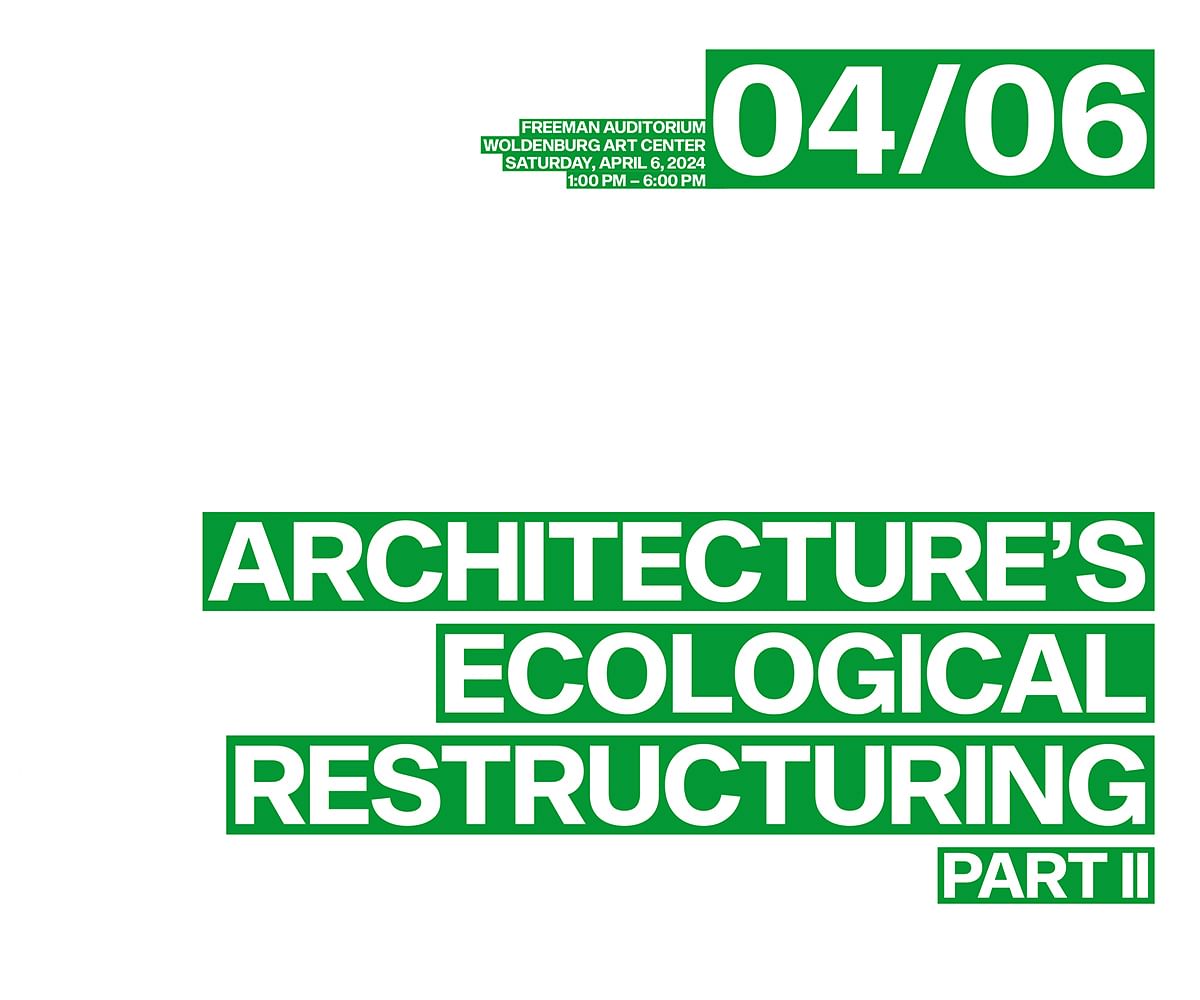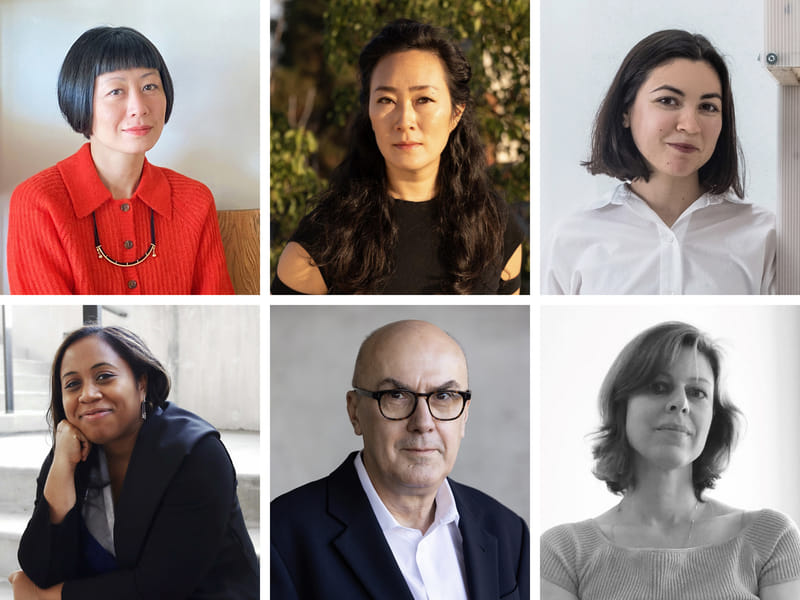Architecture's Ecological Restructuring: Part II
Event Date: Apr 6, 2024; Event City: New Orleans Architecture's Ecological Restructuring: Part II, a workshop-style symposium at Tulane School of Architecture, follows the inaugural session in 2023.Speakers:Debbie Chen, Rhode Island School of DesignRebecca Choi, Tulane School of ArchitectureLiz Gálvez, Berkeley College of Environmental DesignMae-ling Lokko, Yale School of ArchitectureAntoine Picon, Harvard Graduate School of DesignMeredith TenHoor, Pratt Institute School of ArchitectureConvened and moderated by Zaid Kashef Alghata, Favrot Visiting Professor, Tulane School of ArchitectureEnvironmental degradation has transformed the very idea of nature. Nature as it was once known, untouched, undomesticated, unclimbed, or unconquered, no longer exists. As the discourse undergoes an excavation that reveals its destructive socio-environmental impact, demands for a just approach to people and the planet have become a primary matter. This workshop invites six distinctive voices to speculate on the ongoing ecological restructuring of the discipline.The evolution of “ecological thinking” requires the definition of a set of values that scrutinize, preserve, enhance, or restore the macro and micro interrelationships between living organisms and their physical world. Architects have been conventionally trained to think on the level of individual buildings, which has constrained their contribution to resolving global crises. To amend this limitation, architecture's agency must expand beyond the building footprint to include infrastructure and non-civic structures, especially those typically designed by non-architects. The increased importance given to technical solutions instead of reshaping political, economic, and cultural forces that form the built environment is at stake in the existing paradigm shift.Participants will present an object of study to speculate on its future impact on an ecologically centered discourse. What is architecture's take on infrastructure and non-civic structures? What social demands and inequalities do they generate? How can architects better engage with nature? How can disciplinary expertise serve architecture and its allied fields? This workshop draws from these questions to challenge traditional frameworks and build new forms of thinking.Sponsored by the Tulane School of Architecture and Charles A. Favrot, H. Mortimer Favrot Chair in Architecture.More information, speaker bios, and RSVP link is at architecture.tulane.edu/aer/architecture.tulane.ed...Read the full post on Bustler


Event Date: Apr 6, 2024; Event City: New Orleans
Architecture's Ecological Restructuring: Part II, a workshop-style symposium at Tulane School of Architecture, follows the inaugural session in 2023.
Speakers:
- Debbie Chen, Rhode Island School of Design
- Rebecca Choi, Tulane School of Architecture
- Liz Gálvez, Berkeley College of Environmental Design
- Mae-ling Lokko, Yale School of Architecture
- Antoine Picon, Harvard Graduate School of Design
- Meredith TenHoor, Pratt Institute School of Architecture
Convened and moderated by Zaid Kashef Alghata, Favrot Visiting Professor, Tulane School of Architecture
Environmental degradation has transformed the very idea of nature. Nature as it was once known, untouched, undomesticated, unclimbed, or unconquered, no longer exists. As the discourse undergoes an excavation that reveals its destructive socio-environmental impact, demands for a just approach to people and the planet have become a primary matter. This workshop invites six distinctive voices to speculate on the ongoing ecological restructuring of the discipline.
The evolution of “ecological thinking” requires the definition of a set of values that scrutinize, preserve, enhance, or restore the macro and micro interrelationships between living organisms and their physical world. Architects have been conventionally trained to think on the level of individual buildings, which has constrained their contribution to resolving global crises. To amend this limitation, architecture's agency must expand beyond the building footprint to include infrastructure and non-civic structures, especially those typically designed by non-architects. The increased importance given to technical solutions instead of reshaping political, economic, and cultural forces that form the built environment is at stake in the existing paradigm shift.
Participants will present an object of study to speculate on its future impact on an ecologically centered discourse. What is architecture's take on infrastructure and non-civic structures? What social demands and inequalities do they generate? How can architects better engage with nature? How can disciplinary expertise serve architecture and its allied fields? This workshop draws from these questions to challenge traditional frameworks and build new forms of thinking.
Sponsored by the Tulane School of Architecture and Charles A. Favrot, H. Mortimer Favrot Chair in Architecture.
More information, speaker bios, and RSVP link is at architecture.tulane.edu/aer/architecture.tulane.ed...Read the full post on Bustler
